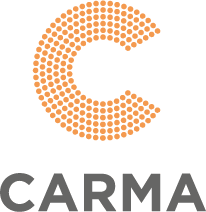In the second blog about her experience of being a judge on the Glass Lion jury at the Cannes Lions International Festival of Creativity, Mary Whenman, President of Women in PR, reviews the work which was awarded a Glass Lion.
When you strip away the luxury hotels, the parties, the rosé, the superyachts, the networking and the beach resort glamour, Cannes Lions is fundamentally all about the work. It’s about rewarding and celebrating the very best of creativity.
However, this year, there’s been a lot of post-Cannes Lions comment about the efficacy of some of the campaigns which were shortlisted for a Lion. Almap BBDO in Brazil has withdrawn all its Bayer work from the festival, which included the sexist, scam .MOV ad which was one of three ads in a campaign that won a Bronze Lion. In another controversy about ethics, Grey for Good in Singapore was forced to return the Bronze Lion it won for its I SEA refugee-locating app that some critics have deemed fake. Both agency networks have a strong track record of winning Cannes Lions for their creativity and most agree that these are isolated incidents.
Others, including Amelia Torode, chief strategy officer at TBWA London, have called Cannes “bloated and confused” and called for Cannes to rethink its purpose before it witnesses its own Lexit, Lions-Exit.
In the middle of all this, the Glass Lion: the Lion for Change, stands out as a beacon which celebrates culture-shifting creativity: work which sets out to positively impact ingrained gender inequality, imbalance or injustice.
This year there were more than 150 entries; of which we shortlisted 18; awarding five of these a Glass Lion, the equivalent of a Gold Lion, and one the Grand Prix. I hope you enjoy watching the following six campaigns.
Produced for KAFA by Leo Burnett, Beirut, Lebanon
In Lebanon, according to religious sects, women as young as nine years old can be married. The NGO, KAFA set out to bring the shocking reality of child marriage to public attention by staging a disturbing photo shoot of a man in his forties with a child dressed in a wedding gown on Beirut’s busy Corniche.
Produced for SK-II by Forsman & Bodenfirs, Gotheburg, Sweden
In China, women are expected to be married by the age of 25, after which they are referred to as sheng nu or “leftover women”. This hauntingly beautiful and powerful campaign for luxury skincare brand SK-II, aimed to change the conversation about China’s unmarried, leftover women.
Produced for Make Love Not Scars by Ogilvy & Mather Mumbai, India
During Cannes Lions, I watched more campaigns about domestic violence than I ever wish to see; and, more worryingly, more about acid attacks on women, which are normally carried out by somebody they know. #BeautyTipsByReshma was a series of films featuring acid attack victim Reshma Khureshi who showed how the make-up women wear is readily available for sale in markets across India, like the acid used to attack them. The campaign sought to prohibit over-the-counter sale of acid.
Produced for Guinness and Diageo by AMVBBDO London, UK
This ad was part of Guinness’s Rugby World Cup campaign and tells the story of Welsh rugby player, Gareth Thomas and how he came out as gay in a traditionally macho sport. The jury felt strongly that we wanted to bust the myth that the Glass Lion is the “women’s award” and remind the global ad industry that it is for work which sets out to positively impact ingrained gender inequality, imbalance or injustice. Gender inequality is not just a women’s issue.
Produced for Procter & Gamble India and Ariel by BBDO India
The campaign depicts a successful, professional woman arriving home from work, doing all the family chores, while on a conference call, as her husband sits on the sofa and watches TV. Her father sees this through new eyes and after years of same behaviour, offers to share the housework with his wife.
Produced for Hindustan Unilever and Brooke Bond Red Label by Mindshare Mumbai, India
This Grand Prix-winning campaign, featuring a transgender pop band, was designed to fight the stigma and discrimination faced by India’s third gender while supporting Brooke Bond’s ethos to “bring people together.” This campaign stood out because the 113 year old brand took a big risk, went for scale and its success lay in the fact that it embedded itself into popular culture.
So what did I learn? I’ve learned that the developing world is often more creative than the developed world in producing campaigns which seek to address some of the more challenging social issues societies face; I’ve learned that India is a hot bed of creativity; I’ve learned that global brands which take a big risk on a social issue will have more impact, more quickly than governments ever will.
I’ve also learned that despite the challenges women face in the UK, we have a good life compared to the majority of women in the developing world. Child marriage isn’t legal in the UK, unmarried women aged 25 and over are not regarded as “leftover” and acid is not openly on sale in our markets. Part of our role should surely be to help women abroad by raising awareness of the far more extreme gender issues they face.
One of our jurors said that judging the Glass Lion has “changed the way I view the world.” I couldn’t agree more.





